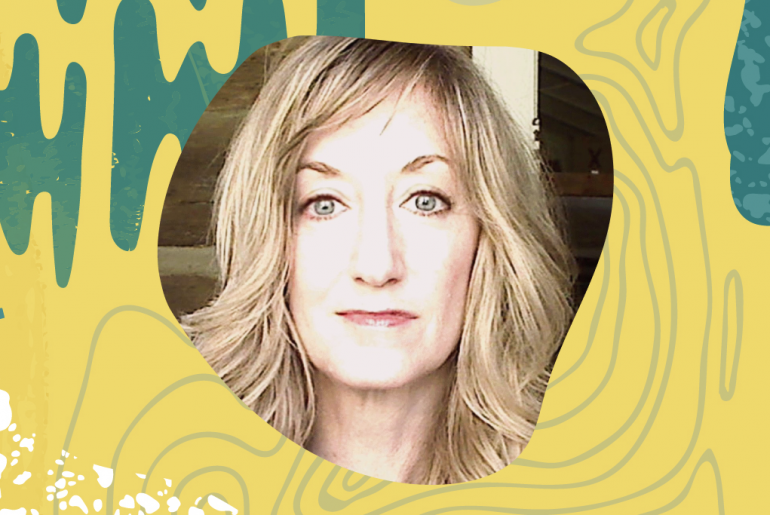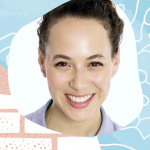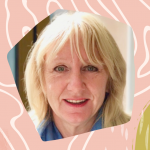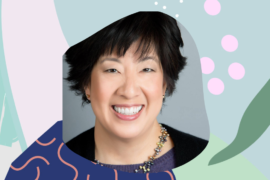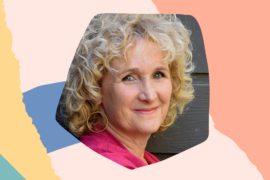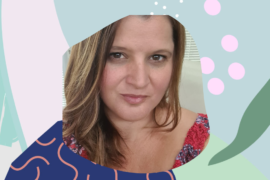Key Takeaways
- Why writing a book is just like launching any other product or service – and how to apply your experience launching any business when starting out.
- How Kathy’s membership site stops her from feeling the weight of 1-1 or small group coaching – and leads to bigger wins for her clients.
- How to use case studies and success stories as marketing for your next launch.
- The first step for anyone looking to get a book deal – and why you’re probably already five steps ahead of the average non-fiction writer.
- The rookie mistake Kathy made early on when launching her membership site – and why community will always be more valuable than content.
Free Give
FREE Guide – Launch & Grow a Profitable Membership Site
Ready to reclaim your time and attract more monthly paying customers? Our step-by-step guide will show you how to build a membership site that turns your passion into recurring profit. Click here to download!Memorable Quote
- “Instead of trying to affect 5 people at a time at a high price point, why don’t I have an even bigger impact and go with a membership, where I can make the price point really accessible and reach far more people?” – Kathy Ver Eecke
Episode Resources
Transcript
Read The Transcript
Shelli: Kathy Ver Eeke, welcome to the It’s a TRIBE Thing Podcast. How are you?
Kathy: I am great. Thank you so much for having me.
Shelli: Good. Well, you are so exciting to talk to for many reasons and you’re going to be super exciting for the people to listen to because most people in our space are interested or know somebody who thinks they have a book in them, who wants to write the book, who is somewhere in the process of writing a book or pitching it, and you are somebody who helps people with that. So, we’re going to get into your membership site and how you do what you do but I’m wondering if you can share with our incredible audience who you were before you became the person who’s helping people pitch agents and get book deals and move through that journey. Who are you at the very beginning of that journey?
Kathy: Sure. Sure. Well, at the beginning and really at my core, I am a bit of a startup junkie. I have worked in and for and around startups for the bulk of my career, which spans more decades than I’m kind of willing to admit but I had the good fortune of being able to step away from that passion for a little while because I decided like 80% of Americans that I wanted to write a book. So, I spent about a year of my life obsessing over the publishing world. I decided that I want to write a book about startups and what it’s like to get a job in a startup because it’s so very different than all the entrepreneurs listening to your podcast know how different startups are and being a solopreneur. So, I spent about a year of my life learning everything there was to learn about publishing. I stalk sellers. I went to writing conferences. I found out, I figured out that kind of cracked the code of the process and for me, when I finally went out and started pitching this book to agents and then to publishers, everything kind of happened for me pretty quickly. I landed an agent almost immediately, which is really kind of it’s the big hurdle where most people fail and it’s harder to land an agent than it is to get a book deal and we could talk about that if we kind of get into the details of that.
But I’ve got to the deal table with Random House very, very quickly and then my story gets sad at that point because back in 2008 or 2009 whenever this was, the sales team at the editorial review board meetings said no one would read a book about startups which if you look at the business shelf today it’s kind of laughable but I was a little ahead of the curve there and the acquisitions editor said, “Look, we like your voice. Write something else.” And what it occurred to me was, since I started on my journey to get this book deal, everyone I knew, I mean, everyone but my grandmother it seems came to me and said, “How did you do it? How did you get the agent? What did you do? What’s the proposal?” And I was thoroughly enjoying explaining the process to these guys. So, when the acquisitions editor said, “Write something else,” I realized I don’t want to write something else. What I want to do is teach this because what I had realized along the way as I was teaching these friends and colleagues and coworkers, as I was teaching them the path to getting published, it aligned almost exactly with everything that I knew and everything that I had been doing for decades launching businesses and building brands and putting products and services out into the world.
The process, the path to getting a book from idea in your head to bookstore shelves is exactly the same as launching any other widget into the world. And so, when I was asked to write something else even though I thought at the time that’s what I wanted to do, I realize that what I was really called to do was to teach other people this path, to teach them how to go from idea to book on store shelves. That’s what brought me to the podcast here today.
Shelli: That’s incredible. Holy smokes. I love what you talked about you had a skill set that you were applying in a different arena and it’s so interesting to me that sometimes people have these skills and that’s what they do and they don’t realize that it could be something they teach. But what I love about what you did is you’ve used the same set of skills across different platforms. So, for everybody listening out there, there are so many times when we take a certain skill set that we have for granted, because it either comes naturally to us or we enjoy it or we’re passionate about it so it’s easy to write that off as, “Well, that can’t be a thing,” but you’ve actually managed to use this set of skills to be able to move forward. And then you’ve created a membership site which I would love to segue into how that came to be and why a membership instead of a course and the results that you’re getting for your people and how that’s affected your life.
Kathy: Sure. So, I actually started with a course. I decided when you answer the same question however many hundreds of times, what is a query letter? Where do you research agents? I thought I’m just going to put this in video form and so I started with the course that I sold on an automated evergreen webinar funnel while I still consulted with startups and I still do work with some startups, but I realized that I would get these great emails from students saying, “I land an agent or I got my book deal,” and I would do my little happy dance around the office but one day I realized that I received far more emails like that from the students that bought the course through my webinar funnel when I also offered a phone consult with it. So, depending on when you went through the funnel sometimes you got a 20-minute call. It was as simple as that. It was just a 20-minute call and I received far more emails, success emails from those students that I’ve had that one little touchpoint, that one extra bit of communication, and that led me to think I keep in mind the other students we’re still getting emails so it’s not as though they took the course and then I was done with them. There was still interaction but something about having just that one phone call and being able to answer whatever question, whatever block or obstacle was keeping them from getting to that next step seemed to be making the difference.
So, instead of jumping, I didn’t go straight to membership. I actually didn’t know about memberships. I started with a kind of higher price point group coaching program that was eight weeks long and I brought agents in and it was very successful from the writer’s standpoint. But the model itself, I did it I don’t remember how I’ve done it. It’s three or four times. The model itself just didn’t work for me personally. It ended up being, it didn’t work for me personally based on the amount of time that I was spending, and it just didn’t work. And that’s kind of when I was first introduced to Stu McLaren, who is the end-all-be-all of all things membership and I was introduced to him, I forget by who, two years ago and I listened to his free training and I thought, “Well, that’s an interesting idea,” and then I spent another year doing these high-end courses that continued to kind of really, in the end, they were just draining too much of my energy and they weren’t leading me enough mental bandwidth to do the other things that I needed to do.
And then the last year at this exact time when we’re recording this so last spring let’s say I watched the free training that Stu McLaren offers in association with his TRIBE course and thought, “Okay. That’s it. That’s the way to go.” Instead of me trying to affect five people at a time or 10 people at a time at a high price point, why don’t I have an even bigger impact and go with the membership where I can make that price point really accessible and reach far more people? So, I actually went into beta on my membership during his free video series. I hadn’t even taken the course yet when I opened up the doors to the beta and I had just, I’ve never looked back. So, I’m actually just passing my year anniversary with the membership and I’m in launch right now. I open the doors again in four days.
Shelli: That’s fantastic. Can you talk about the difference between having a high touch with a low number of people as opposed to what kind of impact or what sort of progress you’re able to make with the larger group of people? So, in this audience, we have a lot of people that are into coaching, one-on-one coaching or group coaching. So, for those people, what advice would you give them or what insight can you provide with respect to how that looks for you now as opposed to your coaching programs?
Kathy: So, one of the things that I struggle with is kind of the weight of the world syndrome. I feel like my client’s success is my responsibility and having a membership has helped me so much deal with this that at the end of the day it is our job to supply the knowledge, the wisdom, the tools, the resources, anything we can give to our clients to help them succeed and then it is their job to go succeed. When I was in a smaller environment, it was to say it’s part of the reason why I gravitate away from the one-on-one consulting with startups and why I liked the idea of launching this course was because when I’m in the smaller setting, it’s me and five writers.
I get very, very invested in their success to the point where it’s truly a mental drain and an energy drain for me because at the end of the day, they have to do the work and if they don’t do the work, they’re not going to succeed or they write fiction. If you can’t write a good book, there’s really nothing that I can do for you. I can get you in front of the agents. I can tell you how to pitch that book. I can get agents and publishers interested in your book, but if you don’t have the goods at the end of the day, they’re not going to buy it. And in that small setting of five people, I felt very personally invested in every one of them succeeding and it was a weight that was crushing for me. In the membership, just because there are other people there, everyone is kind of sharing that weight. I still am invested in the success of my writers, but something about having this community, this tribe of people all lifting and supporting and holding each other up, it just frees me up to focus on, “Okay. What can I teach? What can I share? What tool can I provide?” and I’m less about, “What do I need to do to get student A from step one to step two?”
It truly is shifting the focus from the one-to-one and I’m going to call one-to-five still one-to-one so it’s truly one to many, and it lightens the load significantly at least for me and I would think for anyone else who kind of deals with that weight of the world syndrome as I call it.
Shelli: Right. Well, it is true what Stu says that people come for the content, but they definitely stay for the community. I also love what you said when you were talking about you get people on a call and so because you were able to have like a more personal touchpoint, you’re able to get higher results and when you get higher results then you get more success stories. When you document these success stories as case studies or testimonials, that actually becomes the marketing for your next launch.
Kathy: That’s right.
Shelli: And so, it becomes just by virtue of switching gears and going from one to five model say to a membership site, the amount of success stories and it becomes in many ways almost like an engine for your business, like the marketing and the stories are the thing that goes out there and tells people that, “Hey, you can come work with this person. You can expect to get this result.”
Kathy: That’s exactly right. There’s also the successes build on each other like there’s that kind of thought of superstition or that bad things come in threes. Well, good things come in tens. When you have a group because one person gets a success for accomplishing something and for us in the way we run a membership, success it’s not just that you got the book deal. Success is that got through that next section of your proposal this week because you set that goal on Monday and on Friday when we celebrate wins, you’re celebrating it. But one success leads to the next to the next and it is dominoes. We do have weeks where three people get an agent in a week and we have weekly calls in our group and if anyone lands an agent or gets a book deal, everyone’s invited to come on camera and we wear party hats and we all have confetti poppers and we celebrate and we are having a lot of party hat calls because the successes build on each other.
And successes also motivate the other people in the group that are maybe not experiencing success at that point. They’re at that down cycle. They’re struggling. They can see, not just a stranger, but someone that they’re interacting with that they could get it done, that it did happen to them because to speak specifically to this topic, there are a lot of people out there that just believe debut writers can’t get book deals and debut writers get book deals every day of the week and twice on Sunday to quote Aaron Sorkin. And so, to have these people see their fellow members succeeding lifts them up in a way that I think me just telling them on a 20-minute call, “No, dude, really, people get book deals. It just doesn’t have the same impact.” So, then the membership falls in that way for sure.
[ANNOUNCEMENT]
Stu: So many people in all kinds of niche markets are leveraging their existing knowledge and influence and they’re transforming it into passive monthly income. This isn’t luck. This is a repeatable formula for producing a growing subscription income and if thousands of others can do it, you can too. To find out what type of membership site would be right for your business, visit GetTRIBEGuide.com. Go to GetTRIBEGuide.com and download it today. You’re awesome.
[INTERVIEW]
Shelli: Well, right. What’s funny too because back in the day running a four-minute mile was absolutely inconceivable like nobody was able to do it and it was the benchmark and as soon as one person did it, other people saw that as a possibility. And literally, I think it was the next year there was like five or six people that broke the four-minute mile when previously it had never been done before. And I can see how very quickly having a community much like yours, you know, people are wanting to get that book deal and they’re wanting to land that thing and they’re wanting to birth that story out into the world and are hearing so many people may be loving them through the limits of their own fear, saying things like debut writers don’t get deals but when you’re in a community of people, it’s example after example after example of possibility and like yes it is possible, “Look, this person did it and that person did it,” and that in itself changing sort of the vibrational climate of what people believe is in some ways the virtue by which the thing happens.
Kathy: I could not agree more. Absolutely. And in this particular topic, there is a lot of rejection. It’s like actors going out on auditions. There’s no way around it. You will get rejections from agent. So, if you’re alone in your office at a desk just watching rejection email after rejection email, it can get difficult. But when you can then jump into a membership where you say, “Oh,” and I call it taking out trash. We take out the trash every Sunday. Every Sunday there’s a post and any writer that got a rejection, we look at it from a scientific perspective, what do the agent say, what can we learn from that, what needs to happen next? But we take out the trash. Everybody has their little pity party on Sunday and then on Monday, we set our goals again.
Shelli: That’s brilliant. What has been different for you being able to use the skills that you brought from a different arena, different platform, and now you’re using it for something that you absolutely love, and now this gets to be your business, this gets to be your life? What impact has that made on your personal life, your business life, and your family?
Kathy: Well, interesting. It has – well, it does change my conversations with strangers I will say that because we say you people get book deals. Nine out of ten people say, “Okay. Tell me how,” because they want to get the book deal. So, it’s changed my cocktail party conversations quite a bit, but it’s just great. It’s great to be able to spend all day every day or most of all day. They said, “Do you still work with startups?” At the end of the day, what I’m teaching people to do is take an idea from their head and walk it through the path of making it into a product and putting it on store shelves. So, the skill set is kind of the same as what I was doing and what I continue to do with startups, but there’s something about this topic that just feels more creative. Obviously, we’re writers and what it has done, it’s brought a different I don’t want to say caliber of person because the entrepreneurs are phenomenal and I love them and I have a lot of entrepreneurs in writing nonfiction books in the membership but the person who wants to do this particular thing that wants to create something in their head, that wants to move an audience with their words, it’s a different kind of creative being, and it’s been fun to be able to spend time with those kinds of people and to help them succeed.
Shelli: While I have you here since most of our audience is entrepreneurs of some sort, I’m wondering if you could give a tip or trick in terms of somebody who what would be like the first step of somebody’s looking towards getting a book deal? What would be the one thing that somebody could start doing today to work in their favor for that?
Kathy: So, if they are an entrepreneur and they’re writing nonfiction because the path is completely different whether you write fiction or nonfiction. Part of the path is different. The route to a book deal starts with an agent. It starts with any literary agent. Back in the day, you used to be able to pitch publishers directly. Most publishers today will only accept agented writer. Some of the smaller houses will accept writers that don’t have an agent, but I bring publishers into the group and agents into the group and even the publisher say that actually, over 90% of the other writers they take will come with an agent that’s because they’re trusting the agents to vet the writers for them. So, your first step is to start pitching agents. It’s to get an agent, but prior to that, if you write nonfiction, your first step is really to build what’s called your author platform and a lot of your audience, a lot of your audience, I’m assuming it’s online marketers, you will already have this. And if you don’t already have it, you are five steps ahead of the average nonfiction writer because you have the skillset and knowledge how to get this done and author platform is it’s your built-in audience.
So, it’s that email list that you’re already building to run and build your business, that email list is what gets you the book deal because what the publishers are looking for is how many readers are you going to bring to the table? And then they’re going to take a slice. They’re going to take a percentage of your platform and add that percentage onto the percentage that on to the number of books they think they can sell and that’s what dictates your advance check quite frankly. And just a little side note, so that we don’t have a bunch of entrepreneurs running off and spending the next year writing a book, when you sell a nonfiction book, you sell that book based on your book proposal, not on a book so you do not need to write that book first. You basically write a marketing plan of the proposal that mirrors almost exactly the sections of the business plan. You write a book proposal for your book and that’s what gets you the deal and then you get paid basically to go write the book.
Shelli: That’s incredible. So, it would be safe to say that most of our audience so if they’re online entrepreneurs or marketers are in a drastically advantageous position compared to a regular author say?
Kathy: Yeah. Compared to the doctor down the street who said, “You know what, I’ve got this great idea for helping people lose weight,” that’s great, but if you don’t have the author platform to back it up, the publishers don’t care about your new weight loss program. The entrepreneurs that listen to your podcast are building your audience I would imagine. You’re building your email list. You build your presence on social media. You’re building your network because just here’s another tip is that not every nonfiction writer comes to the table with the full author platform. Some of them come with a really solid promotion plan that taps into their network of people who have a platform. So, one of my writers, for instance, landed a very big agent in New York and her book is going out on submission this month based not on her platform because she had in the hundreds as far as social media following and zero email list, but she has a very deep network of people who have very big audiences. And so, simply saying, “I have commitments from X, Y, and Z to promote this book on launch and this is the size of their audience.” that works as an author platform.
So, you can have your own author platform or you can bring a borrowed platform, borrowed authority, basically. Either one puts you worlds ahead of that doctor down the street with a good diet plan.
Shelli: That is a heck of a pro tip. Thank you for that.
Kathy: Sure.
Shelli: Last question. What tip or advice would you give somebody who is entertaining starting a membership site?
Kathy: So, one of my big mistakes and it was a real rookie mistake that I would suggest people not do is thinking that because people were paying me on a regular basis now, instead of just one payment for the one-on-five or just taking the course, since they were paying me regularly, I thought more is more when it came to content and so I buried my members with stuff. And four, maybe five months in, I did a survey and got that word that I should’ve known better because I learned better from TRIBE that the number one reason people leave memberships is overwhelm and I wasn’t having people leave but they were actually using the word overwhelmed when they filled out my survey. What it took me a while to realize is that what these people wanted what they needed in the best way that I can help them was to just show up. We have weekly calls, just be there to answer the questions. That doesn’t mean I don’t have some content. I do have some content, but I made the mistake of thinking and it’s probably what kept me from starting the membership a year earlier was that I was going to have to be a content factory and that’s just simply not the case.
Your audience is your audience because you have something to share that they want that your voice is resonating with them and they just want more of that. So, show up in whatever way is fastest and easiest for you because while you are worrying about, “Darn, I’m going to have to batch 12 months of new content and course material or I need to get the very best posting platform and forum and I don’t know where they’re going to chat,” while you’re worrying about all those things, there are people out there that could be benefiting and growing and moving forward because of your expertise and they can’t get to it because you’re not offering it. So, walk away from that story that you’re telling yourself which I told myself for a year that the text is too complicated or there’s too much content and just go out there and serve your people. They’re waiting for you.
Shelli: I love it. Walk away from the story that doesn’t serve you. This has been amazing, incredibly valuable from both getting to learn about your membership site but also the insight that you provide to our community because many people, like I said, are in the business of looking or seeking to write a book at some point based on their life experiences. So, thank you so much for your generosity and for sharing. We appreciate you.
Kathy: My pleasure. Thank you for having me.
[CLOSING]
Stu: I hope you love that story. It’s amazing, right? That’s what It’s a TRIBE Thing is all about. So many people in all kinds of niche markets are leveraging their existing knowledge and influence and they’re transforming it into passive monthly income. Listen, this isn’t luck. There’s a repeatable formula for producing a growing subscription income and each week we’re going behind the scenes to show you exactly how they did it. Get the latest stories and actionable ideas from each episode at www.ItsaTRIBEThing.com and if you know one other person who could benefit from this, tell them to subscribe. Tell them to go to ItsaTRIBEThing.com.
